Resetting the nation: Mahama urged to back rhetoric with decisive action on ORAL and galamsey-Oppong-Fosu
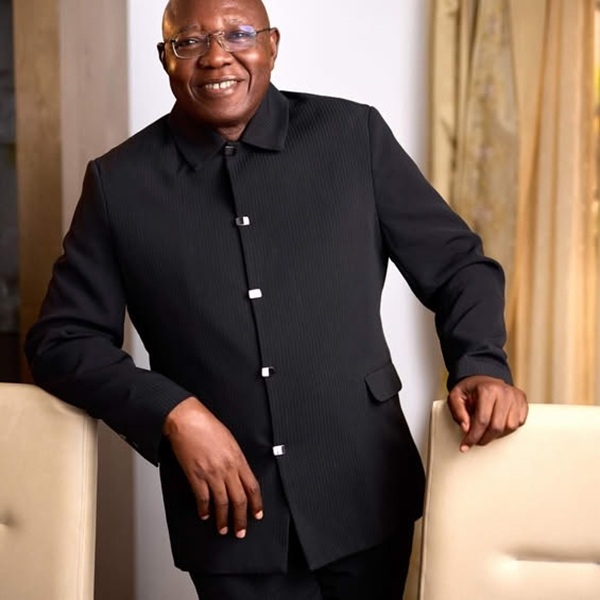 Akwasi Oppong -Fosu
Akwasi Oppong -Fosu
Former Minister of Local Government and Rural Development, Akwasi Oppong-Fosu, has called on President John Dramani Mahama’s administration to back its “reset agenda” with decisive action, warning that failure to do so could erode public trust and destabilise Ghana’s democracy.
In a widely circulated statement titled “Resetting the Nation: End of Politicking, Beginning of Leadership”, Mr. Oppong-Fosu reflected on his 2023 caution that Ghana risked democratic backsliding if leaders failed to depart from a “business-as-usual” approach to governance.
While the 2024 elections passed without incident, he said the new administration now faces a “clear and present danger” if it fails to meet citizens’ expectations.
According to him, two pressing issues—Operation Recover All Loots (ORAL) and the fight against galamsey—will serve as the true test of Mahama’s leadership.
“These are not just policy matters; they are existential challenges and moral tests.
Failure to act decisively on these two fronts risks igniting the very frustrations that could undermine our democracy and erode confidence in leadership,” he stressed.
Citing recent remarks by President Mahama at the Democracy Dialogue, Mr. Oppong-Fosu warned that growing frustration among young people, including rising sympathy for military rule, signals deep disillusionment.
He blamed this on unemployment, inequality, corruption, impunity, and environmental destruction that have left citizens feeling betrayed by democracy.
The former minister and Board Chairman of GIPC outlined five pillars he believes are essential to a genuine reset:
Moral Leadership — restoring integrity in public life with religious leaders, traditional authorities, academia, and the media serving as moral guardians.
Ethical Governance — embedding accountability and transparency in politics and business.
Collaboration — fostering collective responsibility among government, civil society, and citizens.
Visionary Leadership — pursuing long-term transformative policies such as the 24-Hour Economy, Youth Service & Skills Corps, and the Women’s Economic Resilience Initiative.
Overcoming Identity Politics — uniting Ghanaians beyond ethnic, partisan, and regional divisions.
Mr. Oppong-Fosu described ORAL, which seeks to recover misappropriated state resources, as a “litmus test” of the government’s willingness to confront entrenched interests and restore public confidence.
He also said failure to decisively end illegal mining, which has devastated farmlands and poisoned rivers, would render the reset agenda hollow.
He urged the government to move beyond transactional politics and embrace leadership with “moral purpose, inclusivity, and vision”, aligning Ghana with global shifts in governance that prioritise collaboration, wisdom-sharing, and collective survival.
“Resetting the nation therefore, means breaking free from transactional, divisive, and self-serving politicking, and embracing transformational leadership—one that is self-sacrificing, inclusive, and visionary,” he concluded.
Source: Classfmonline.com/cecil Mensah
Trending News
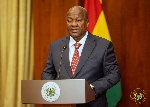
UNGA 80: President Mahama impresses on UN to embark on reset, calls founding charter outdated
19:32
Interior Minister strengthens security ties with Saudi Arabia
17:54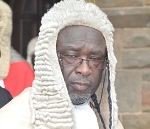
President Mahama appoints Justice Paul Baffoe-Bonnie as new Chief Justice
15:42
C-DAG slams NPP over ‘hypocrisy’ on illegal mining
12:35
NEIP CEO raises alarm over theft of Kayayei training equipment after NPP's election loss
06:54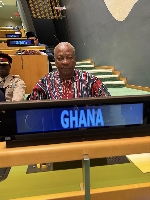
President Mahama set to address United Nations General Assembly
15:17
Dr. Toni Aubynn supports first-year SHS students in Wassa Damang
17:09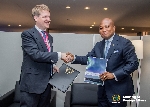
Ghana, Norway sign political consultations agreement to boost bilateral ties
14:59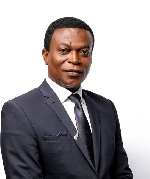
Tensions rise at GRIDCo over CEO’s continued stay despite retirement directive
11:05
Fear of victimisation prevented workers from raising concerns - DVLA CEO
08:46



